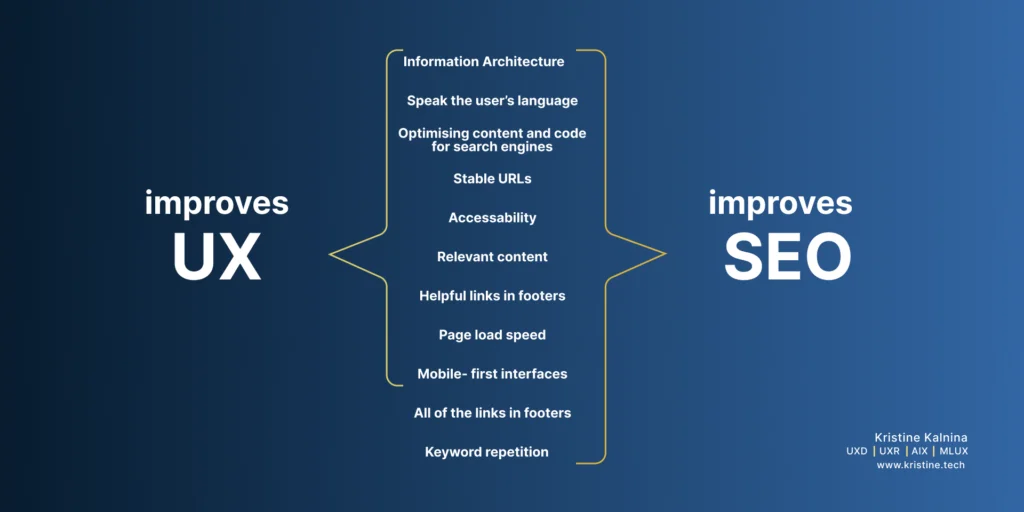The Link Between UX and SEO
Search engines like Google focus on delivering high-quality content. A key part of this quality is the user experience. Here’s how improving UX can enhance your search rankings:
1. Lower Bounce Rates
A well-designed website with easy navigation encourages visitors to stay longer and explore more pages. High bounce rates indicate that users aren’t finding what they need, which can harm your rankings. By improving UX—like speeding up load times and ensuring mobile compatibility—you can keep users engaged and lower bounce rates.
2. Increased Time on Site
When users find your content useful and easy to navigate, they spend more time on your site. Search engines see this as a sign of quality, which can improve your rankings. To boost time on site, consider adding engaging multimedia, clear calls to action, and user-friendly layouts.
3. Better Click-Through Rates (CTR)
A great UX leads to well-crafted meta titles and descriptions that attract users. An appealing headline, combined with an easy-to-use interface, can increase your CTR from search results. This higher engagement signals to search engines that your site is relevant and deserving of a better ranking.
4. Mobile Optimization
With more users accessing websites on mobile devices, optimizing for mobile is crucial. A responsive design that offers a seamless experience across all devices can enhance usability and improve your search rankings. Google prioritizes mobile-friendly sites, making this aspect essential.
5. Accessibility
Making your website accessible to all users, including those with disabilities, enhances the overall experience. Improvements like using alt text for images and ensuring keyboard navigation can broaden your audience, increase engagement, and boost rankings.
User Retention: The Role of UX
Keeping users engaged is vital for long-term success. A positive UX encourages visitors to return, fostering brand loyalty. Here’s how improving UX can enhance retention:
1. Personalized Experiences
Offering tailored content can make users feel valued. Use data to understand user preferences and adapt your content accordingly. Personalization can increase satisfaction and encourage repeat visits.
2. Clear Navigation
An intuitive navigation structure helps users find what they need quickly. If visitors can easily locate information, they’re more likely to return. Consider using clear categories and search functionality to improve usability.
3. Consistent Branding
Maintaining consistency in design and messaging creates a cohesive experience. A strong brand presence fosters trust and familiarity, encouraging users to come back.
4. Regular Updates
Continuously improving your website based on user feedback keeps your content fresh and relevant. Regular updates not only enhance UX but also show search engines that your site is active, which can positively impact SEO.
5. Engagement Features
Incorporating features like comments, reviews, and social sharing encourages user interaction. Building a community around your brand can increase the likelihood of return visits.
Conclusion
Improving user experience is crucial for both SEO and user retention. By focusing on lowering bounce rates, increasing time on site, optimizing for mobile, and enhancing accessibility, you can create a website that ranks well and keeps users coming back.
Investing in UX Boost Ranking and Retention is an investment in your brand’s future. As you enhance the experience you offer, you’ll likely see better search visibility and stronger user loyalty. Remember, a satisfied user is a returning user, and that’s key to any successful online presence.
Questions:
How does user experience (UX) impact search engine rankings?
What specific UX improvements can lower bounce rates?
What steps can I take to improve my website’s user experience immediately?
How can I ensure my website is accessible to all users?
How can personalization enhance user retention?
Read our latest Blog
The Growing Importance of Data Privacy in Software Development
The Growing Importance of Data Privacy in Software Development
Essential Skills Needed for Success in the Digital Age

